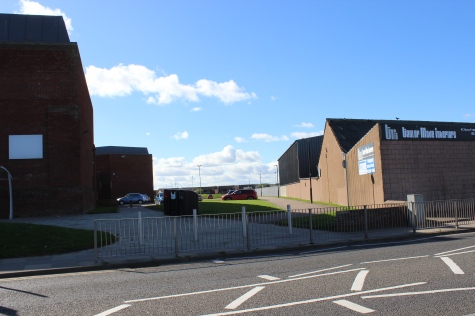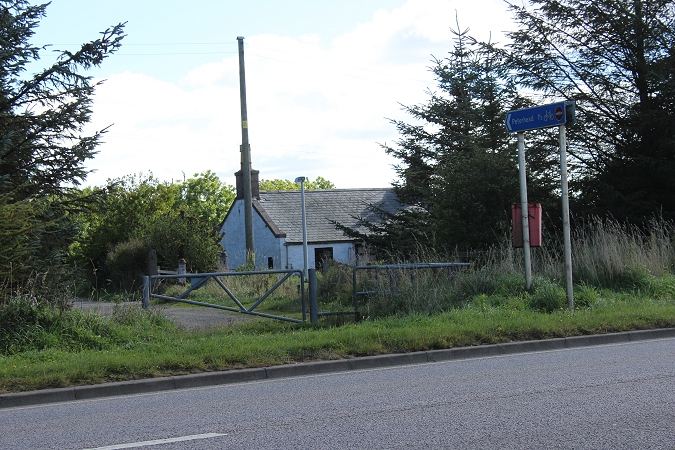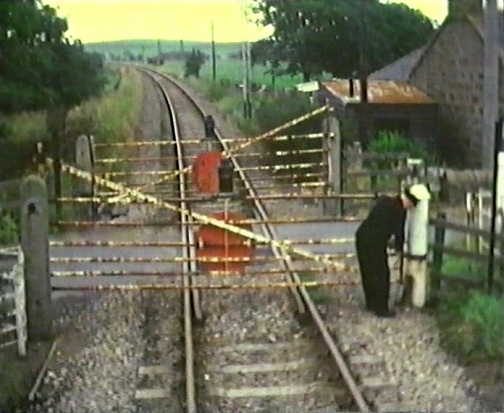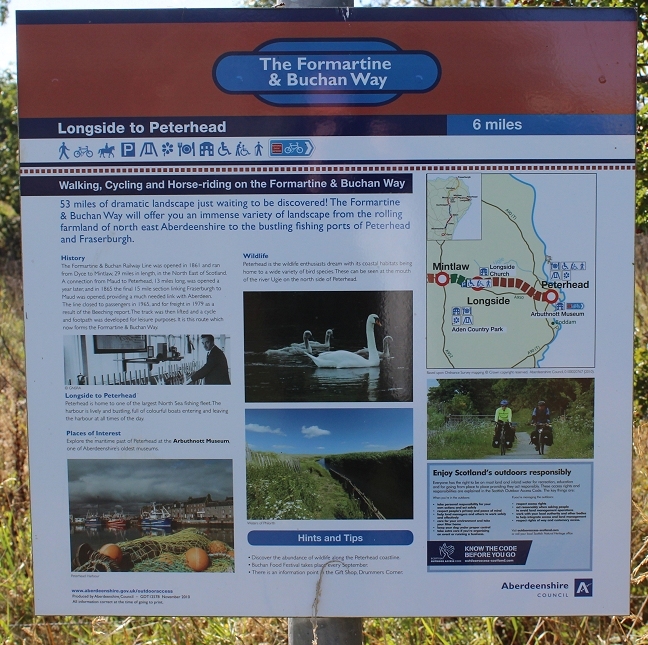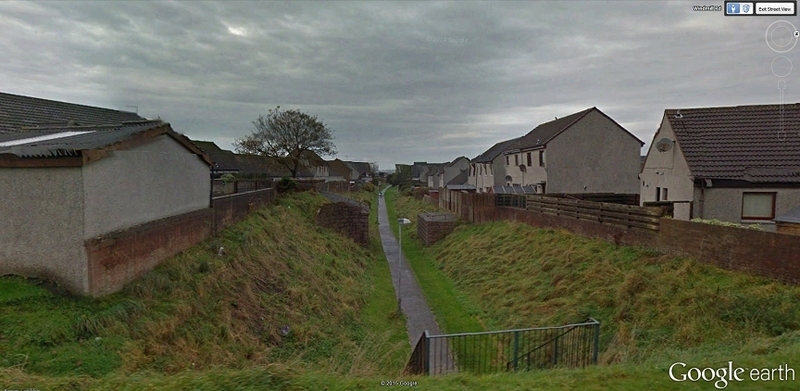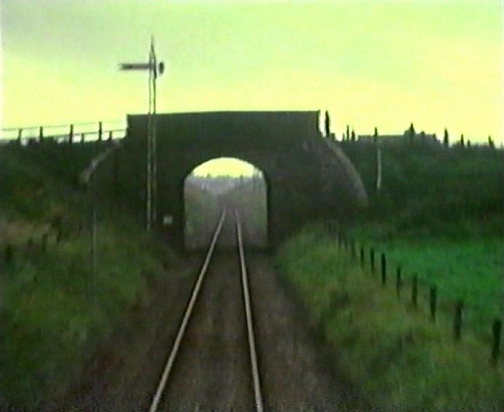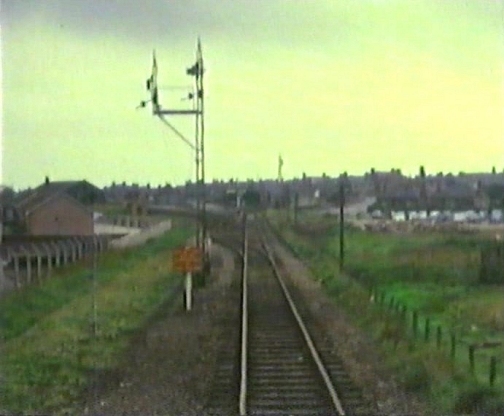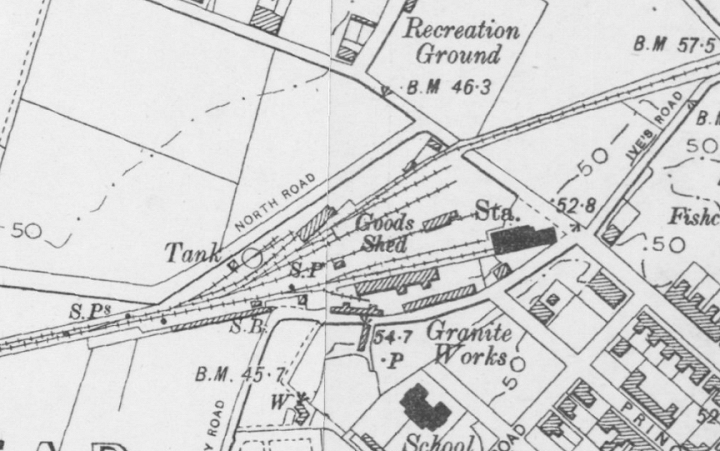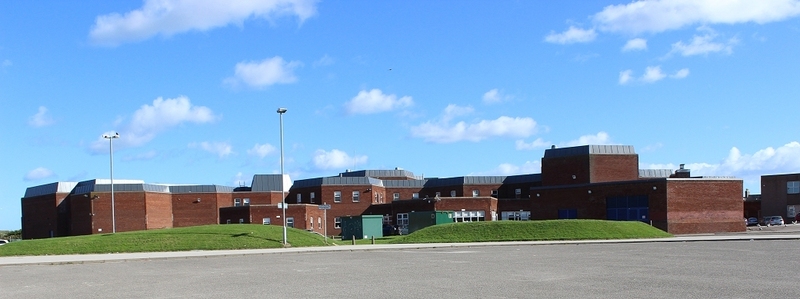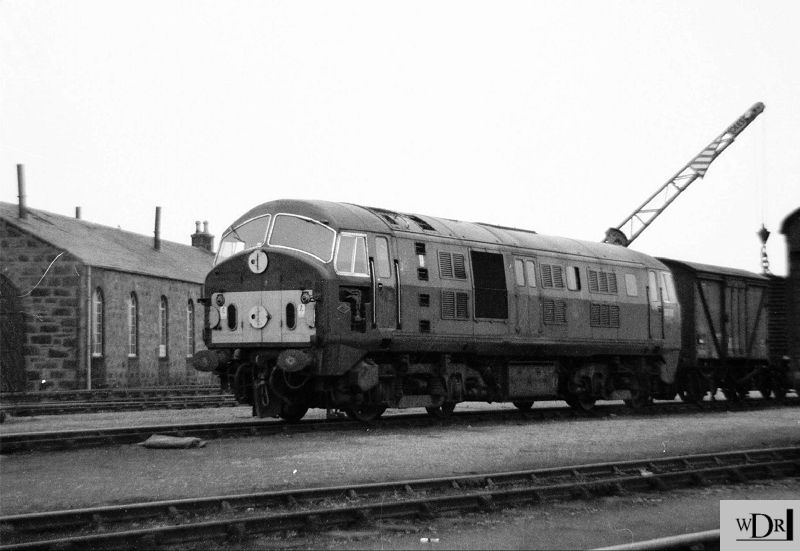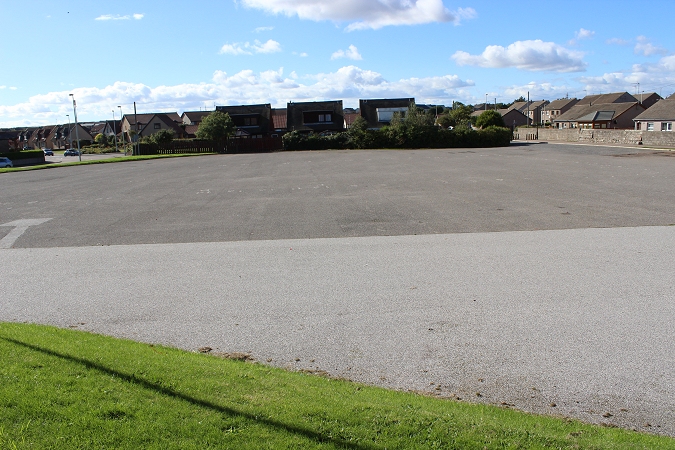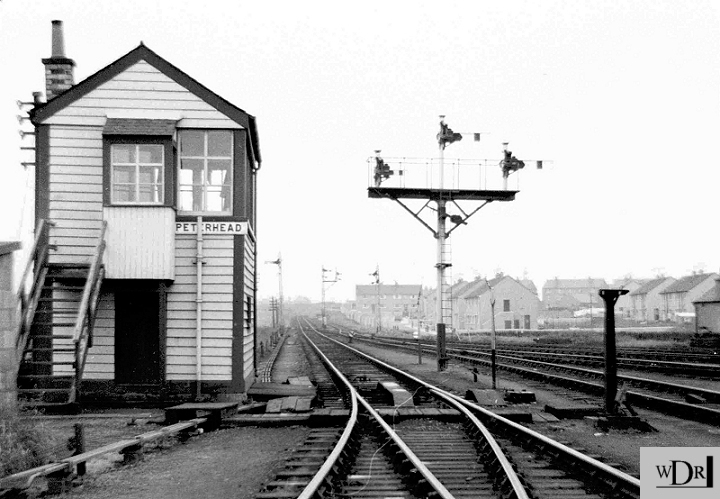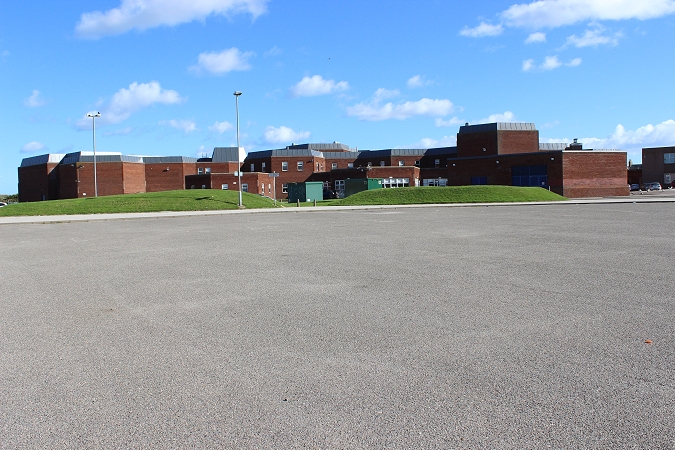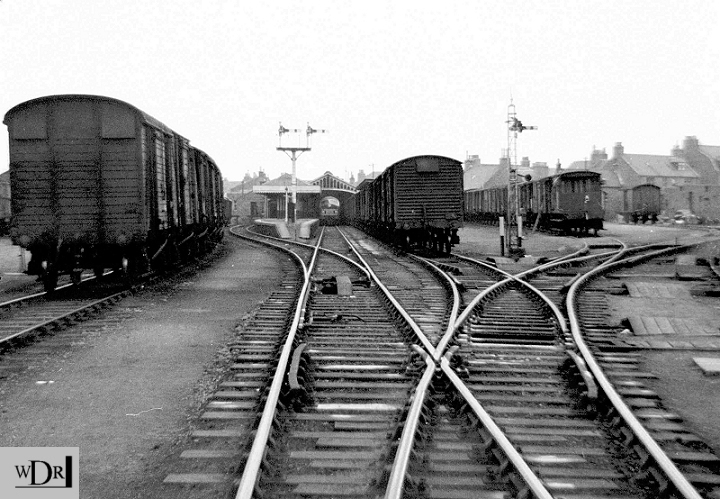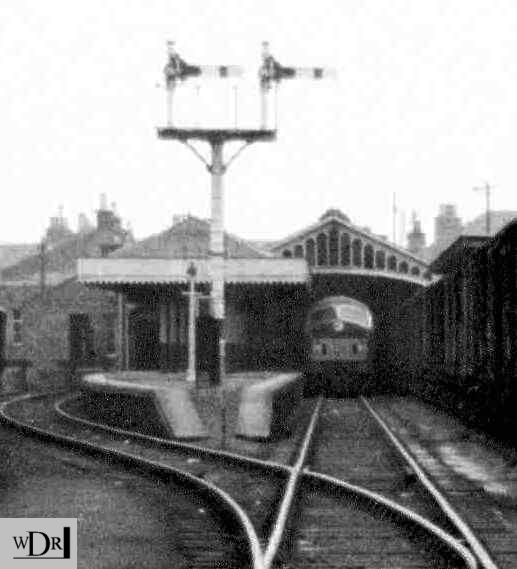INVERUGIE TO PETERHEAD
The final couple of miles or so into Peterhead. I remember it as being mostly quite open country but the town has expanded considerably to the east
and you quickly feel that you are already in Peterhead, albeit it is still a mixture of over and under bridges with a number of new crossings where
new roads have been formed. The station site has changed so much that it was difficult working out where things were.
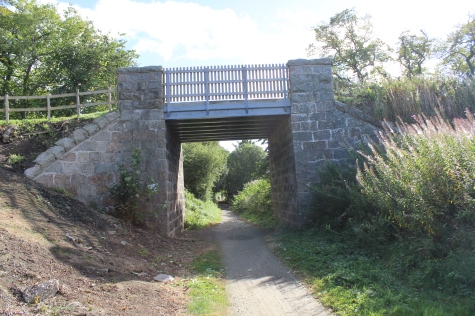
The over bridge at the north end of Inverugie station site. Looking towards Peterhead
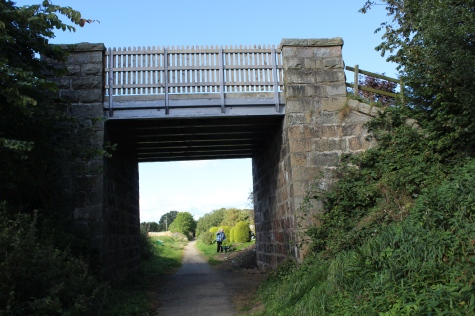
Reverse view back towards Maud.===============================================================
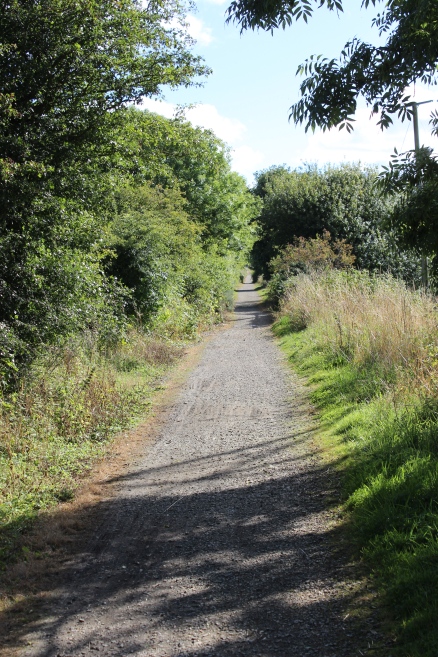
Just north of Inverugie station site, towards Peterhead. Left: Taken with the 18mm wide setting. Right: Taken with the 55mm setting.
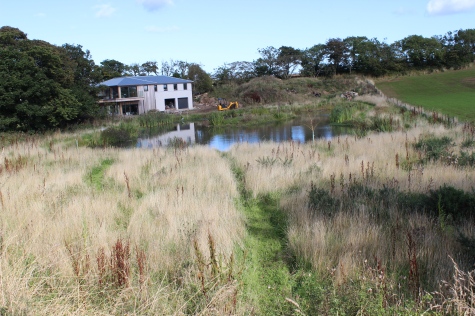
A modern house being built by a small pool. North side of the track bed.
Towards Peterhead.
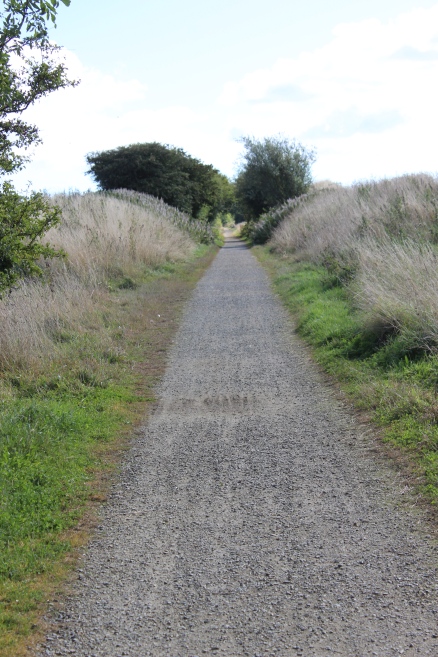
Towards Peterhead. Towards Inverugie.
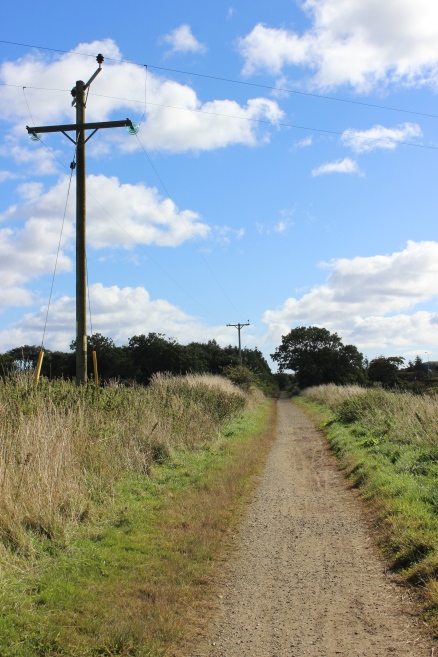
Towards Peterhead.
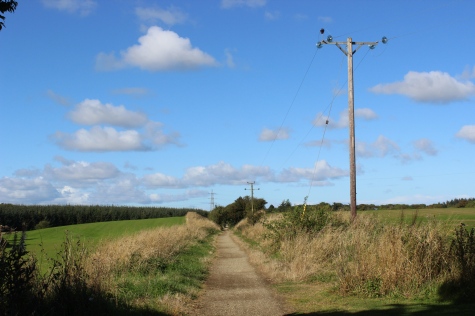
Left: Back towards Inverugie. Right: Approaching the new crossing on the new section of road that by-passes the original road and level crossing.
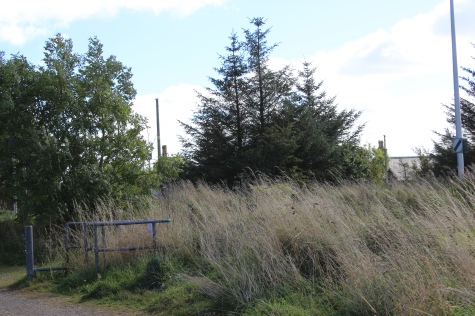
Eastwards and westwards, respectfully.
The original crossing was on the old road, with the new road in the foreground.
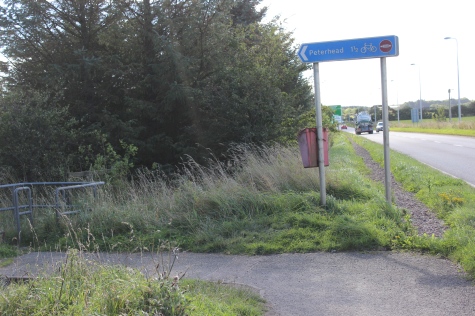
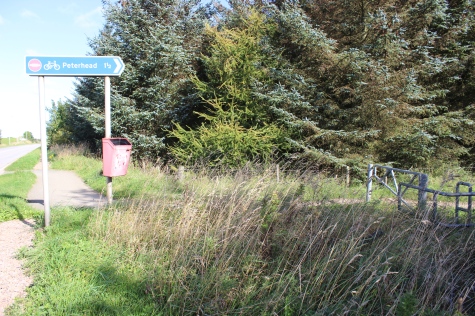
This crossing has been made when the new A90 road was built. The original crossing is to the right.
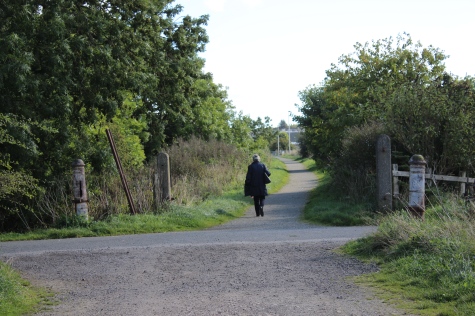
The original level crossing and Crossing Keeper's house. On the western outskirts of Peterhead.
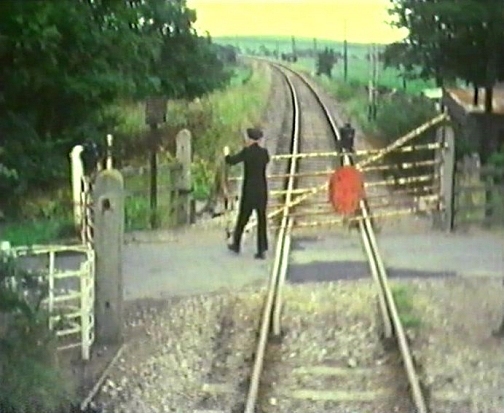
Taken from the wagon-clearing train brake van. The guard is closing the gates on the final train working in 1979. It will open again for the track-lifting crew
and train. N.B. the sparsness of building between the crossing and Peterhead, in comparison to the present day. (Video film screen grab).
The gates were designed so tha no staff could walk or run directly onto
the road. This is seen in the photo above, right, where the guard is
locking the gate to the post.
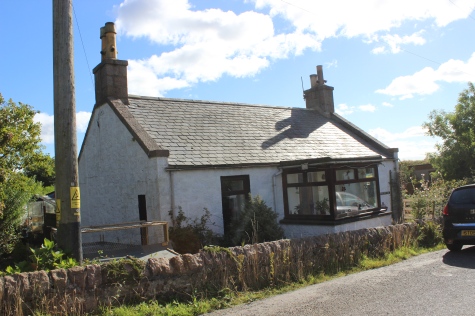
Left: The Ex Crossing Keeper's house is now a private dwelling. Right: The crossing, looking northwards on the road.
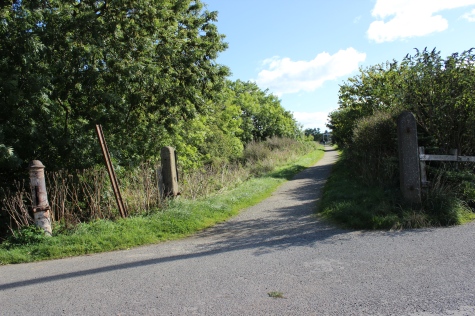
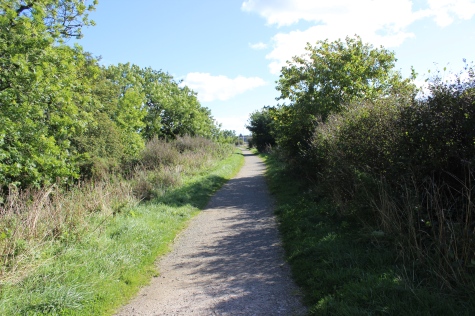
Towards Peterhead
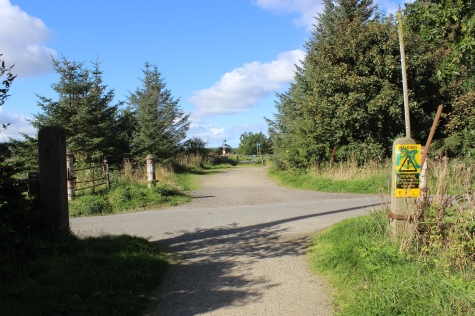
Left: Back towards Inverugie. Right: Towards Peterhead.
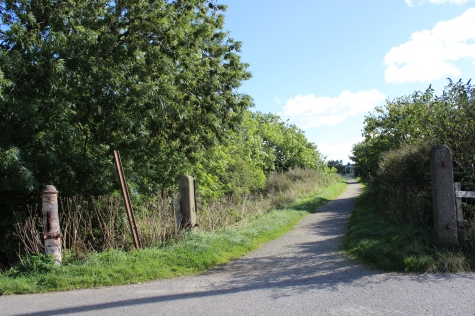
The gate posts were of concete but the posts for the staff crossing were made of metal, as were the swing gates.
Right: This is the gate seen in the old photo above, left.
Information board by the old crossing.
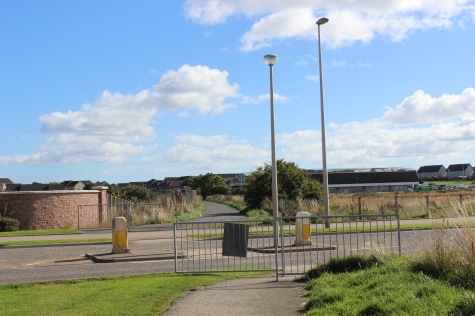
Left: Another 'new' crossing due to a new road.
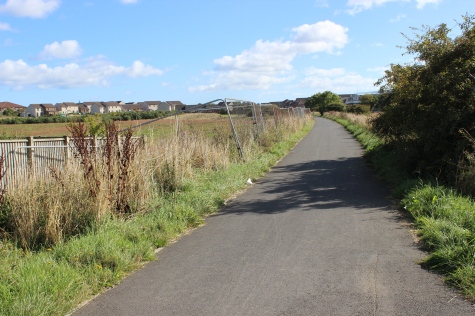
Towards Peterhead. Towards Inverugie.
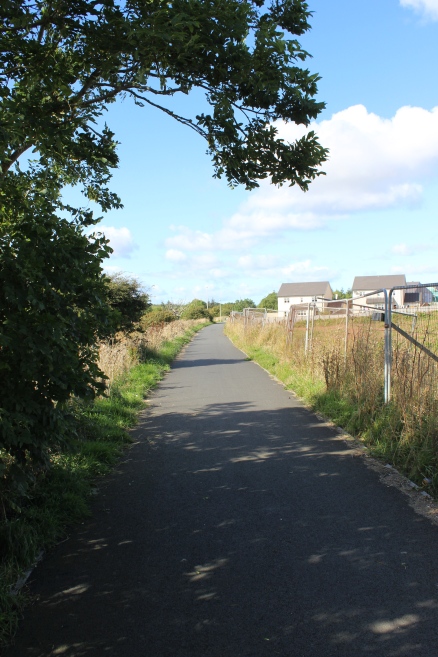
This new estate is still growing. I seems incredible how many towns that lost their railways have expanded considerably, which I am sure would
have been a bonus to the railway if it had been kept. Left: Looking westwards. Right: Towards Peterhead station site.
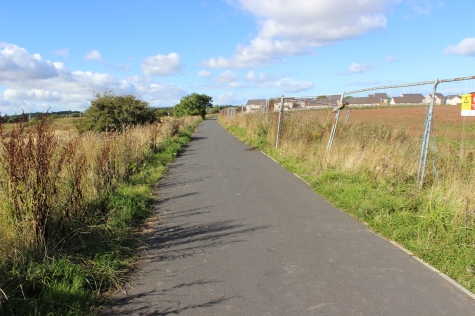
Ditto.
Towards the station site.
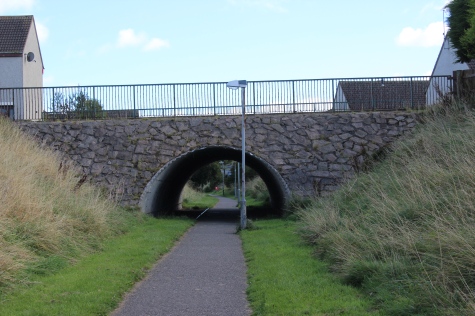
New over bridge on Richmond Avenue. Another "complication" for any possible reopening!
The new bridge at Richmond Avenue. This is another bar to any possible
branch reopening!
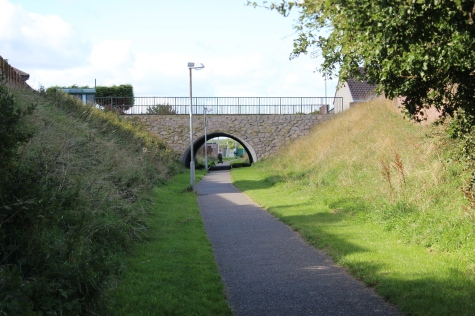
Left: View westwards. Right: View towards station site.
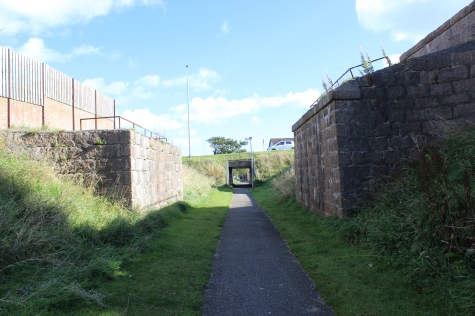
The old over bridge, replaced by the new over bridge up ahead, on Richmond Avenue.
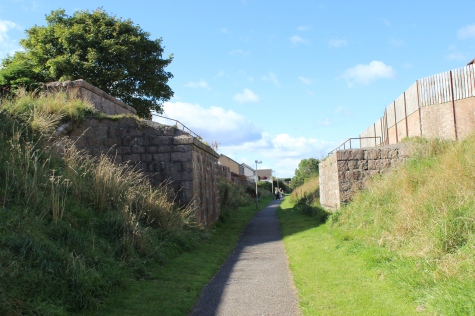
Left: An old over bridge, where the road has been abandoned and a new road built nearer the town. Right: Towards station site.
The old bridge remains seen from Richmond Avenue, looking westwards. (Google Photo).
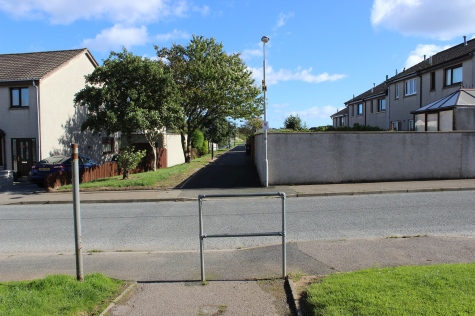
Yet another new crossing, over Mallard Drive on the new estate.
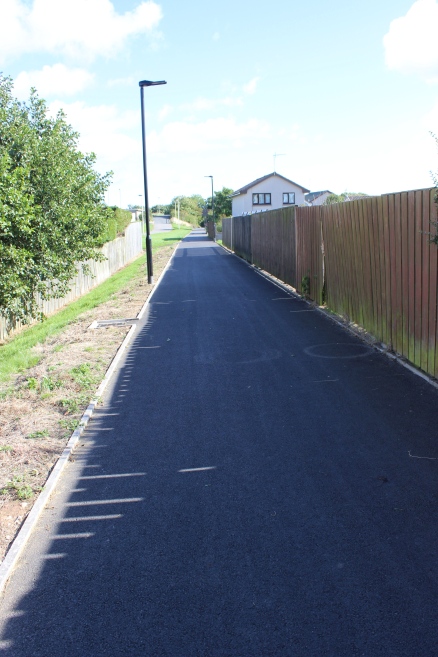
Westward and eastward views, respectfully.
Over bridge on Copelandhill Road. The distant signal for the station stood on the left. (See below).
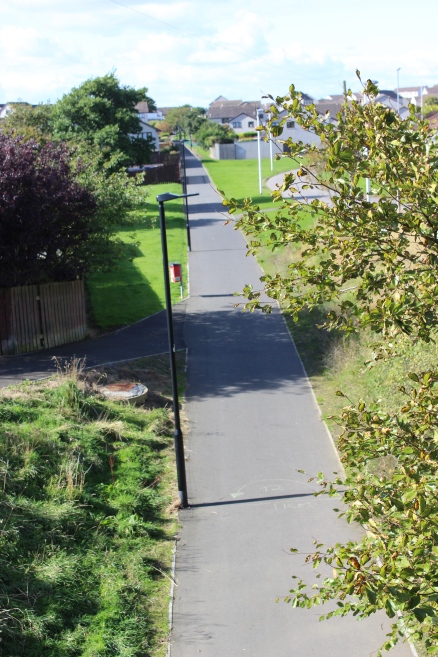
Views from the over bridge (westwards).
On the over bridge.
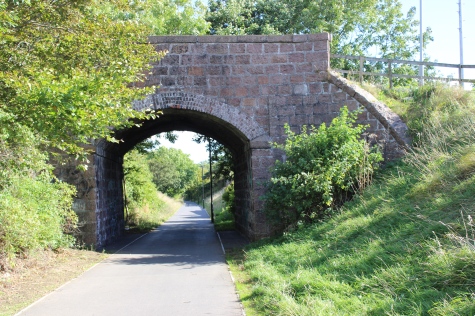
Copelandhill Overbridge. Left: Towards Peterhead. Right: Towards Inverugie.
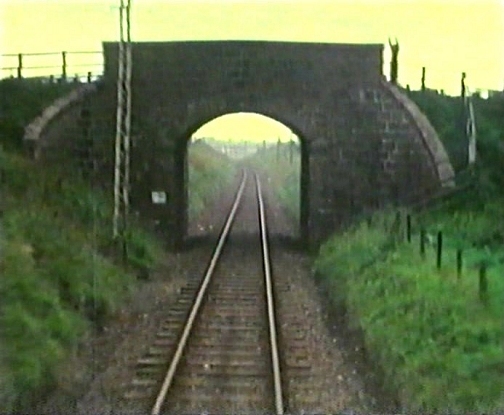
As above left. Copeland Hill over bridge, almost from the same spot. Taken from the wagon-clearing train brake van in 1979. (Video film screen grab).
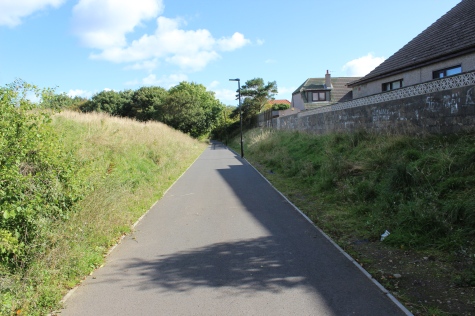
Eastwards from the over bridge, towards the station site.
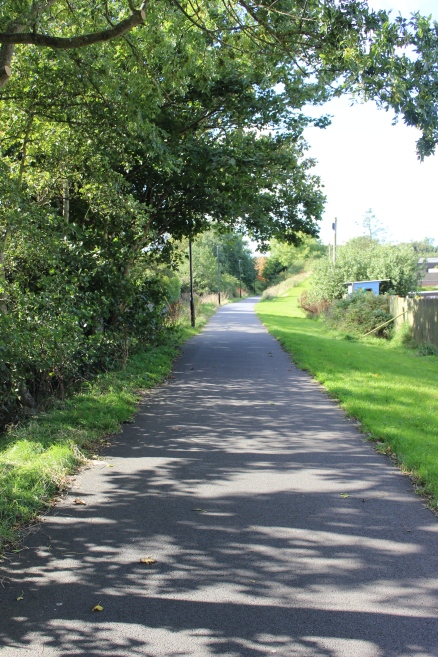
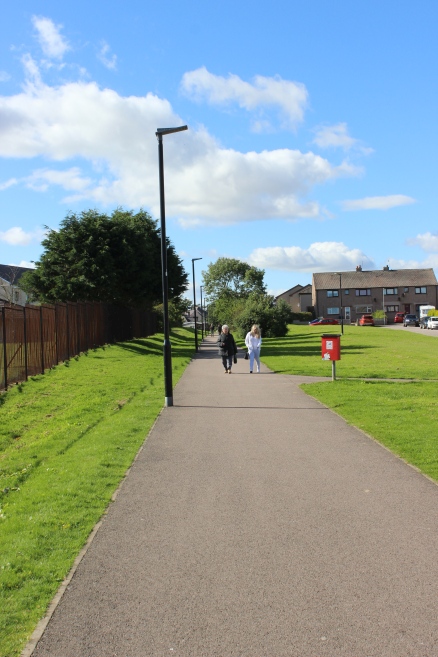
Right: See photo below for reference with this today thoto
The pointer to where this image was taken is by the red brick building on the left.
You can see it behind the white van in the photo above, right. Follow the straight
track to the station and you can see how this present path has been moved to the
left as the way is blocked by the houses. (Video film screen grab).
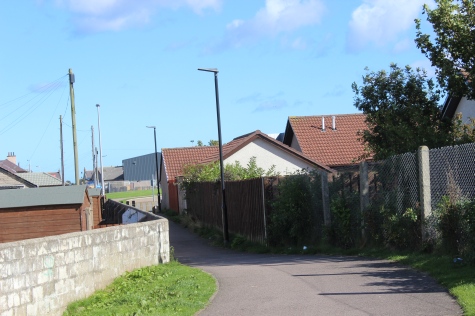
Peterhead station layout. (NLS Maps).
The shed was to the left and the Goods shed just left of center with the station to the right.
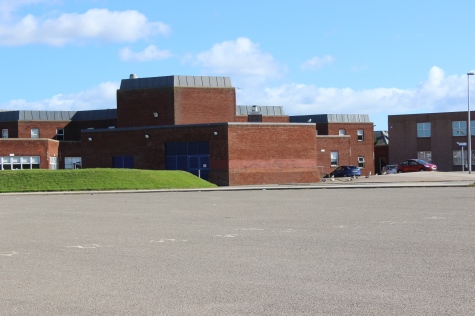
This is about the nearest to my 1964 photo (Below) of D6148 in the Goods Yard
by the loco depot.
North British Locomotove Co. built Type 2 D6148 on a train in the Goods Yard in 1964 with the locomotive shed on the left.
The track nearest the shed is that which went down to the Harour.
Site of the Water Tower and Turntable.
Again, this is about the nearest I could get to the same spot as my 1964 photo below. They have completely
built-over the direct line of site. This is what will add to making reopening the railway difficult and
expensive to ever return to the same spot for a new station. This has been cropped from
a much wider view to match as much as possible with the 1964 photo.
About the only things still visible to mark this spot are the houses to the immedate right of the signal post facing the
same angle as the railway track and the north side perameter stone wall. N.B. The remains of the Auto single line
token exchange aparatus, on the far right.box 1964.
The reverse view from photo above The points that I was standing on when taking the photo is where passenger
trains would stop at the control signals and the loco uncouple and run into one of the sidings on the right. The
coaches would be dropped down to the station under gravity and controlled by the guard. The loco would then
be shunted from the siding, onto the front of the coaches for the the next journey. The points for the loco
run-rounds were removed some years before actual closure.
The reverse view from photo above The points thast I was standing on when taking the phto is where passenger
trains would stop at the control signals and the loco uncouple and run into one of the sidings on the right. The coaches
would be dropped down to the station under gravity and controlled by the guard. The loco would then be shunted from
the siding, onto the front of the coaches for the the next journey. The points for the loco run-rounds were removed
some years before actual closure. 1964.
A cropped image from the photo above of the locomotive and it's train in
the passenger station.
